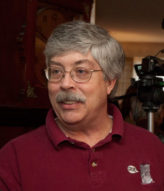Having now been on this ball of mud for a few years, I take with a grain of salt the splendiferous pronouncements of "WE’RE ALL GONNA DIE!" from the environmental wackos. While some of the underlying reasons for doing so did really exist (face it, pollution WAS a HUGE problem here in the US back in the 60s and 70s as lots of "spaces" were treated as dumping grounds). Since then, however, we have seen tremendous efforts with tremendous results.
Thus, when I hear more of the same, I just go "been there, done that – and we fixed it too". That is not to say that more cannot be done – it’s just that the "gloom and doom" just doesn’t excite me any more as I’ve been Chicken Little’d far too often with the long ago predictions just not jiving with empirical evidence.
Such as these that I found over at PowerLine:
- “…civilization will end within 15 or 30 years unless immediate action is taken against problems facing mankind,” biologist George Wald, Harvard University, April 19, 1970.
- By 1995, “…somewhere between 75 and 85 percent of all the species of living animals will be extinct.” Sen. Gaylord Nelson, quoting Dr. S. Dillon Ripley, Look magazine, April 1970.
- Because of increased dust, cloud cover and water vapor “…the planet will cool, the water vapor will fall and freeze, and a new Ice Age will be born,” Newsweek magazine, January 26, 1970.
- The world will be “…eleven degrees colder in the year 2000. This is about twice what it would take to put us into an ice age,” Kenneth Watt, speaking at Swarthmore University, April 19, 1970.
- “We are in an environmental crisis which threatens the survival of this nation, and of the world as a suitable place of human habitation,” biologist Barry Commoner, University of Washington, writing in the journal Environment, April 1970.
- “Man must stop pollution and conserve his resources, not merely to enhance existence but to save the race from the intolerable deteriorations and possible extinction,” The New York Times editorial, April 20, 1970.
- “By 1985, air pollution will have reduced the amount of sunlight reaching earth by one half…” Life magazine, January 1970.
- “Population will inevitably and completely outstrip whatever small increases in food supplies we make,” Paul Ehrlich, interview in Mademoiselle magazine, April 1970.
- “…air pollution…is certainly going to take hundreds of thousands of lives in the next few years alone,” Paul Ehrlich, interview in Mademoiselle magazine, April 1970.
- Ehrlich also predicted that in 1973, 200,000 Americans would die from air pollution, and that by 1980 the life expectancy of Americans would be 42 years.
- “It is already too late to avoid mass starvation,” Earth Day organizer Denis Hayes, The Living Wilderness, Spring 1970.
- “By the year 2000…the entire world, with the exception of Western Europe, North America and Australia, will be in famine,” Peter Gunter, North Texas State University, The Living Wilderness, Spring 1970.




